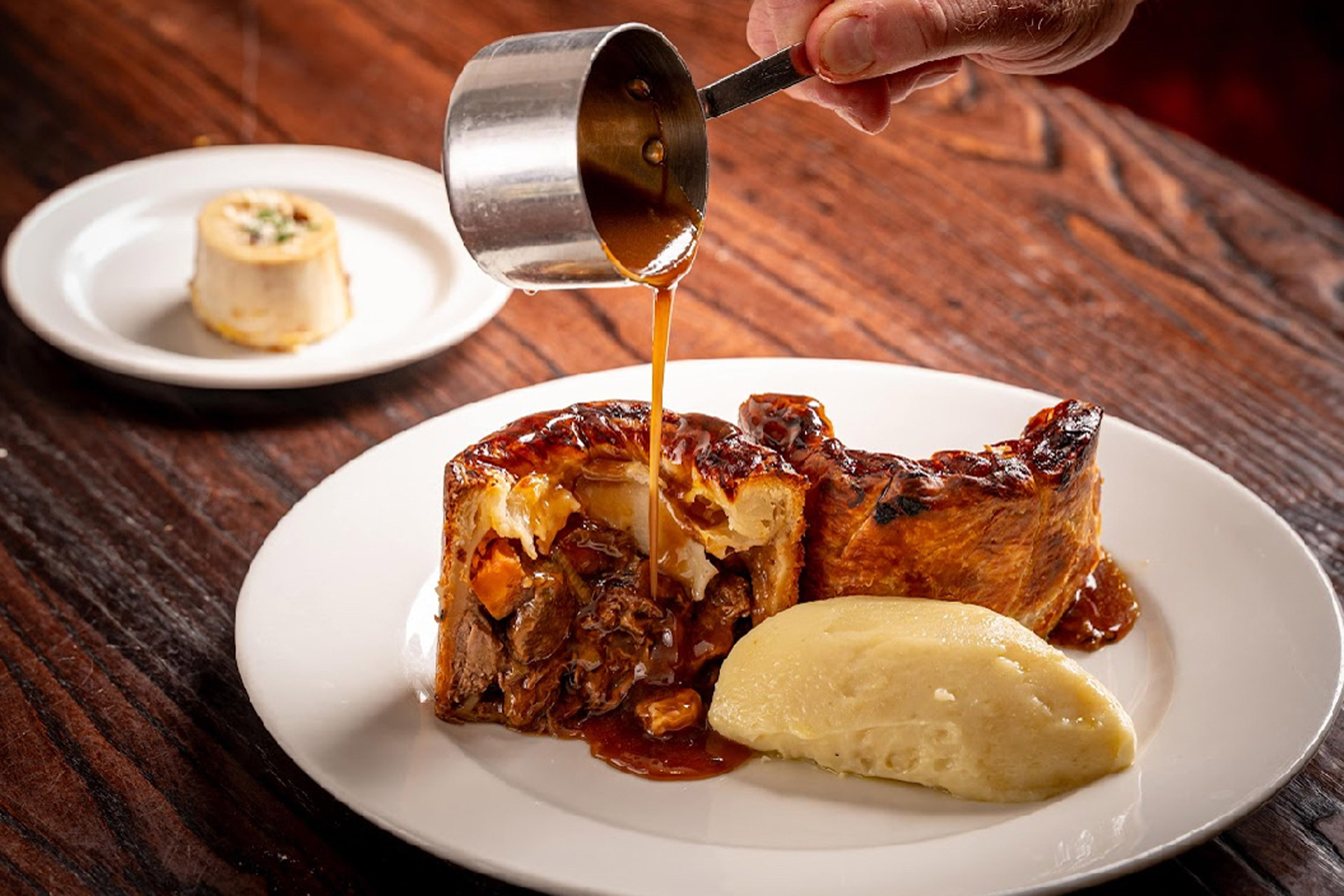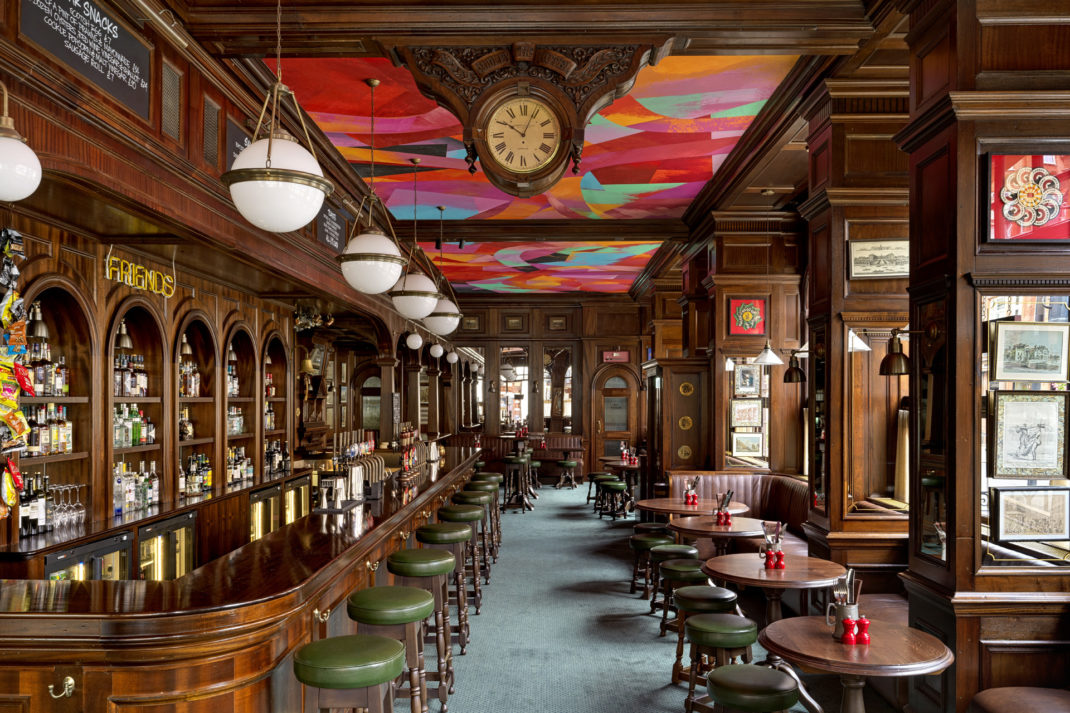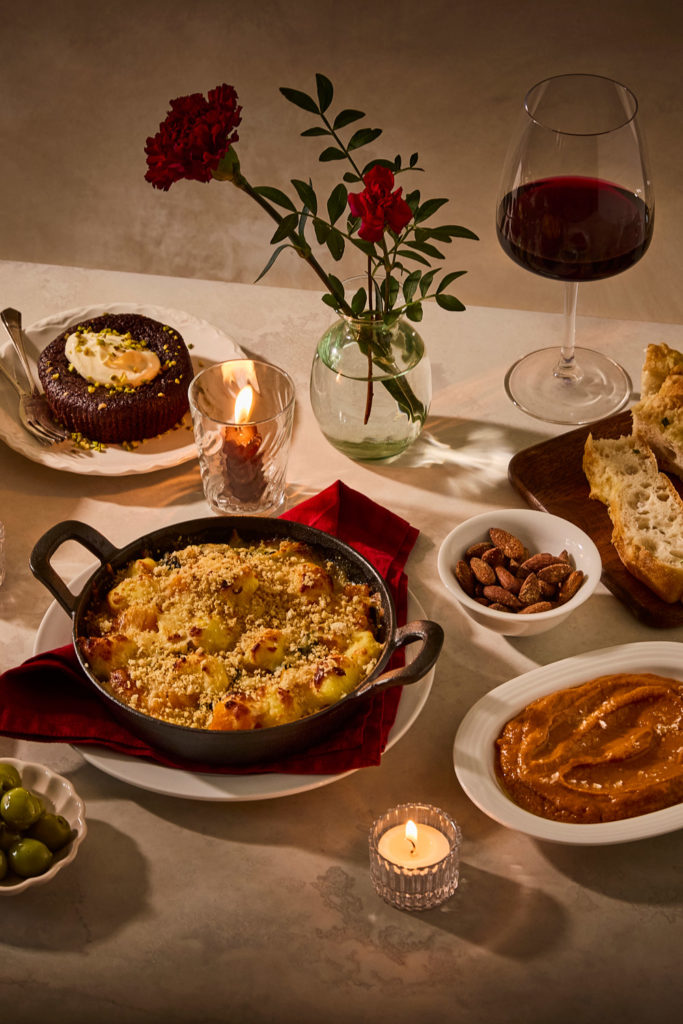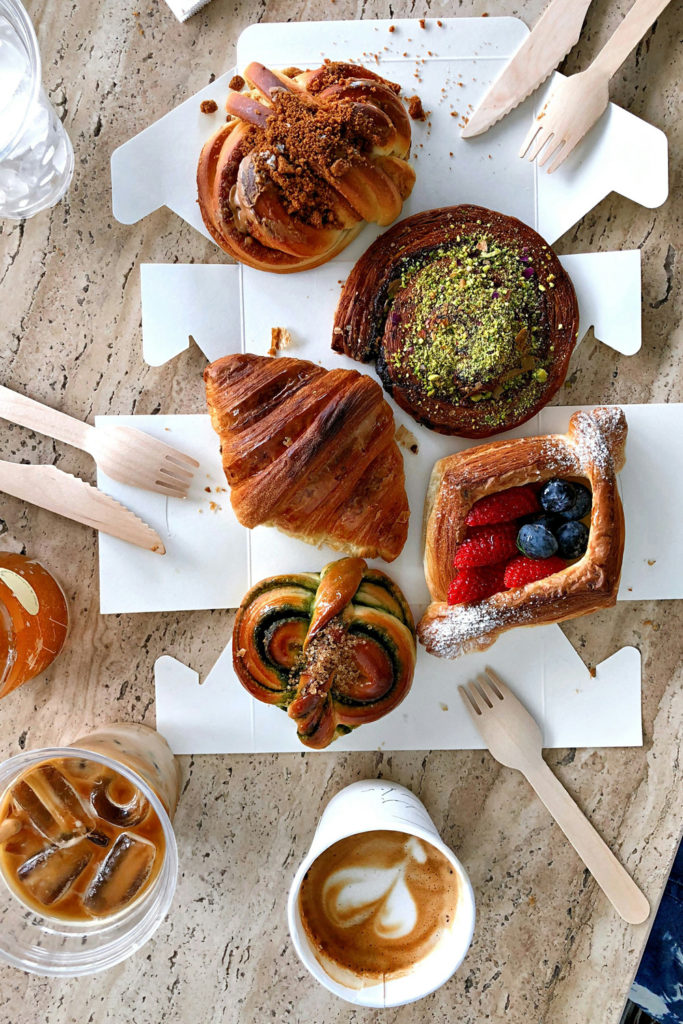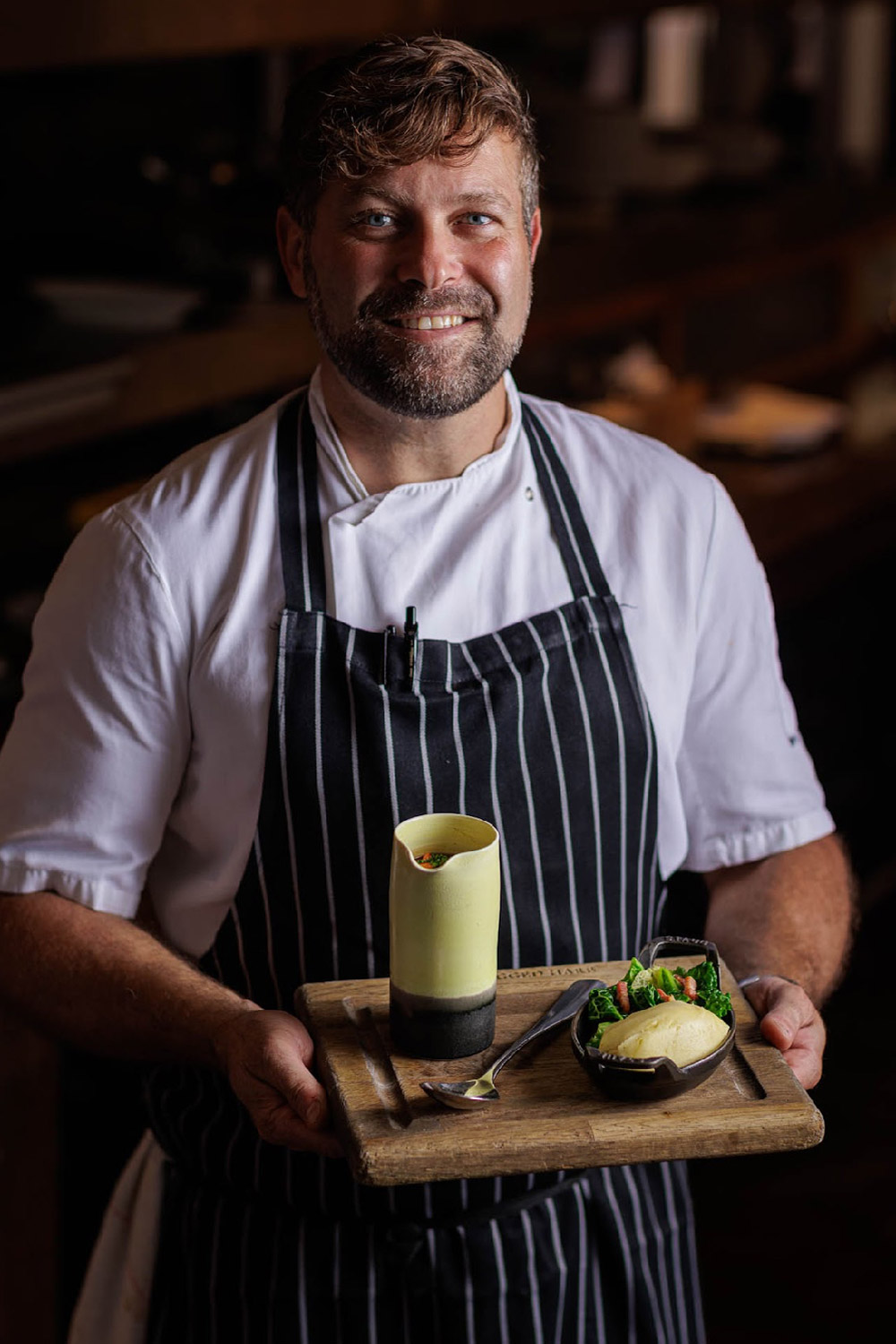
The Jugged Hare’s Raf Liuth On His Zero-Waste, Nose-To-Tail Dining
By
5 months ago
We meet the chef leading one of London's top game restaurants
Raf Liuth is head chef at The Jugged Hare in Barbican, a British restaurant defined by its nose-to-tail ethos. He oversees a daily changing menu, building each day’s offering from scratch using what’s fresh, what’s available, and what others might overlook.
Originally from rural Brazil, Raf grew up vegan in a household where nothing was bought from a supermarket. This early experience shaped his respect for ingredients and informs the zero waste ethos he brings to the kitchen today. To minimise waste, everything is either used at its peak or preserved by hand. Apple skins become vinegar, trimmings become charcuterie and the end of blood orange season has brought a fresh batch of arancello. It’s this constraint that sparks creativity, where fermentation, ageing, and instinct come together. In an industry where some ingredients are glorified whilst others go unseen, Raf sees no hierarchy, just ingredients, all of which are worthy of care.
You bring a scientific curiosity to your culinary craft. What have you learnt about the relationship between chemistry and nutrition?
Both are intrinsically connected. After all, what we sense as flavour comes from the balance between salt, acid, fat and sweetness in what we eat every day. Take salt, for example – adding it to fish doesn’t just season; it triggers a chemical reaction that changes the way we taste and experience the dish. For me, cooking is really just a series of controlled chemical experiments, but with the very human goals of pleasure and nourishment.
Gaining experience from Claudio Sadler to Gordon Ramsay to Sally Clarke in Notting Hill, who or what has inspired you the most?
I’ve been fortunate to work in very different kinds of kitchens: from small family trattorias to huge brigades with thirty chefs on shift, from rustic home cooking to two Michelin star restaurants. Each one has left its mark, but I’d say Sally Clarke had the biggest influence on what we do today at The Jugged Hare. Her focus on daily changing menus, her close relationships with suppliers, and her insistence on cooking with what’s truly in season are lessons I carry with me every day.
What is your approach to cutting waste?
At The Jugged Hare we always work with whole animals. Goat is a great example. We’ll take in the entire animal and find a use for everything: beautiful cutlets, loins for skewers, curried shanks, belly, broth, merguez sausages and our well-known goat nduja. It’s about respecting the animal and maximising what it gives us. To name just one many other ways we reduce waste, trimmings from the apple sauce that complements our pork belly are fermented into homemade apple cider vinegar.
As you say: ‘a lobster doesn’t know what a tomato is worth’. Whether a prized cut or a humble vegetable, how do you see potential in every ingredient?
It’s a funny saying but one that I feel is very true. Often when I’ve ordered dishes like lobster thermidor, crab tagliolini or tournedos rossini which are all fantastic in theory, they fall flat when they’re cooked without care and technique. On the other hand, simple ingredients cooked with passion can blow you away and leave more of a lasting impact for me. I think of Davide Oldani in Milan, who became well known for a signature dish of caramelised onion.
Root to stem, and nose to tail; nothing is ever wasted. Why is this so important to your craft?
It’s really a return to how things were not so long ago, especially in the countryside, where you only had access to what was around you. In spring, fennel stems might go into salads, and by late summer or autumn the bulb can be roasted, shaved raw or turned into soup. With pork, the offal would be eaten first, some cuts cured, others made into salami, and offcuts preserved in fat for winter.
At The Jugged Hare we try to echo that approach across the board. Yes, it’s about whole animal butchery and charcuterie made in-house, but it’s also in the jars of pickles and the vinegars we ferment from trimmings that would otherwise be thrown away. Everything is given another life. Respecting ingredients and cooking with the rhythm of the year isn’t just sustainable, it challenges us to be creative every day and to use up ingredients in many different ways.
What do you enjoy the most whilst working at The Jugged Hare?
I would say the freedom to reinterpret classics and create new dishes following our ethos. Having a daily changing menu can be a real challenge, but it’s one that brings us constant inspiration.
Where do you see yourself in 10 years?
Maybe back in Brazil, maybe with a place of my own, I haven’t decided yet.
What was your first dish that you learnt to cook?
My first experience cooking was when I was around nine years old. I knew my mum was coming back home from the city (which was a long way growing up in the countryside) and I wanted lunch to be ready to surprise her. I cooked spaghetti and carrots together, which I thought was a brilliant idea at the time. It probably wasn’t, but that moment was when I knew I wanted to learn how to cook properly.
When you’re not in the kitchen, where are you?
Usually outside. I love walking through nature and exploring the history of the places I visit. But more often than not, I’ll be at home fixing something. I really enjoy DIY.
What is your top tip for foraging?
Honestly I’d say the main thing is to get outside regularly – there’s something to find almost every month of the year. Personally, I really enjoy going out around June and July when there’s so much natural abundance.
What has been your most favourite ever meal?
It’s hard to choose one, but a few years ago I spent a couple of weeks driving through southern Italy. In Altamura, I tracked down one of the oldest ovens in Italy that’s famous for baking sourdough. Hidden down narrow streets with no sign on the door, I was so happy to find it. I asked the locals where I could find good burrata and they directed me to a spot where the cheesemaker told me to wait while it was made fresh. That evening, in the motorhome, dinner was just sourdough, burrata and olive oil I’d picked up nearby. It couldn’t have been simpler, but it remains one of the best food experiences of my life.
Find out more about The Jugged Hare at etmcollection.co.uk


